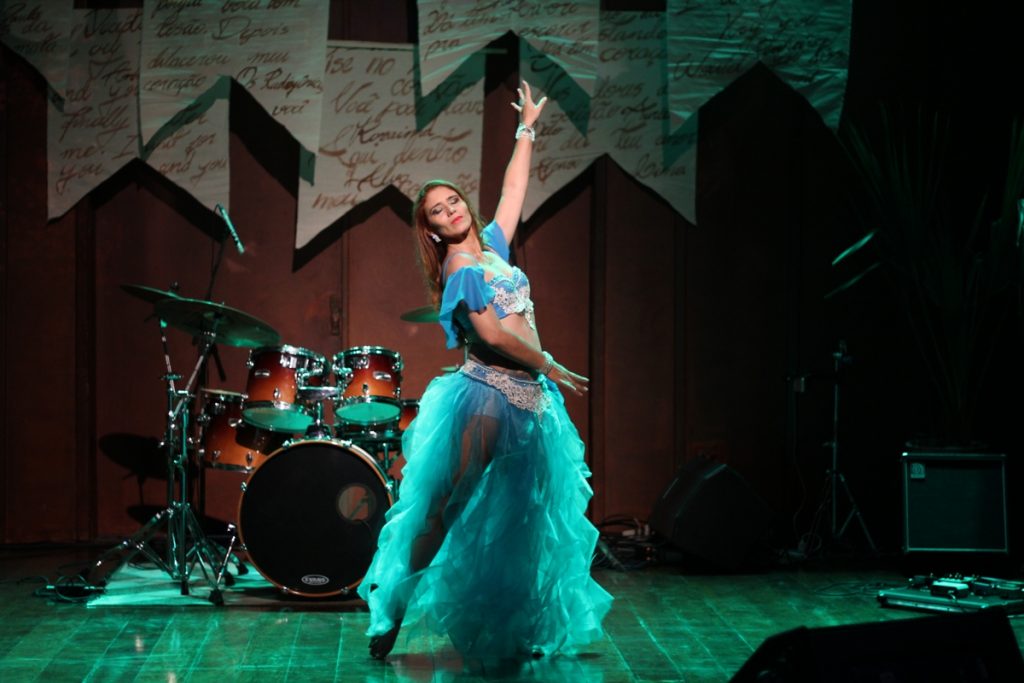São Paulo – Traces of the Arab immigration in the Brazilian state of Piauí will be addressed in the play “Nós do Piauí” [“We from Piauí”] to debut on Wednesday (25), when it’s celebrated the International Arab Dance Day, an art that will be used in conjunction with Brazilian music in the play to talk on the Arab culture influence in the state.
The play creator and director Noé Filho explains that the goal is to showcase the Arab immigration to people of Piauí. “They don’t know much about that. People even freak out a bit when we explain. We want to share a bit of this history so that people can learn and take an interest,” he told ANBA. Noé is part of the art collective for Piauí culture Geleia Total, which created the play.
Northeastern accordion and Arab dance
The play features two main elements: the accordion and Arab dance. Together, they show the knots that built Piauí. “We’ll focus on an Arab aesthetics, setting and dance. The band will accompany and have a conductor with an accordion. The idea is to use the accordion as a link between Arab culture and Brazil Northeast stereotype. It’s also an instrument that makes many choreographies possible,” Noé explains.
The show choreographer is the very dancer to step on the stage: Izabell Lins (pictured above), a benchmark in Arab dance in Piauí. The accordion is played by the conductor of the Orquestra Safônica de Teresina, Ivan Silva. The repertoire is composed of songs from Piauí but gained new arrangements to bring the Arab sound. The band features derbake, an Arab percussion instrument.
The play unfolds between songs and scenes. The storyteller that will connect the dots is the play’s singer. “She’ll talk a bit about history, nature and art in Piauí. She’ll a character that is always seaming the elements,” Noé said.

To create the play, the director studied researches and works such as “Da pátria à Casa” by Marcos Vilhena, who has a master’s degree in History from Federal University of Piauí. The book gives an overview of the Arab immigration process in Brazil and how they arrived in Piauí. The book presented Noé with Brazil Northeastern stories shaped by Arab culture that set the poetic and musical tone for the play. “Cordel literature has an Arab and European influence, while aboio – a communication system created by vaqueros in sertão – came about because when Arabs came to Brazil, they came very attached to trade, cruising long distances as traveling salesmen. They used chants to communicate and, from that, came aboio. It’s widely used in sertão,” he said.
He also found influences in architecture, cuisine and especially trade. “Here in Piauí we have two cities that stand out, Teresina and Floriano, where Arabs first arrived. There [in Floriano], it’s standard to eat Arab food. And since they arrived just when the city was being formed, there are always big celebration events, such as the one celebrating their arrival in Floriano. In Teresina, the Arabs helped form local commerce. They organized the economy in the region. There are important things in our region,” he points out.
The director’s intention is to make a season of the show after the initial date. “We want to travel around Piauí. We struggle since it’s very big play. It has 20 dancers and musicians, not to mention the staff. But we’ll make an effort to take it at least to Floriano,” he said.
Quick Facts
Play “Nós do Piauí”
Two performances, at 6 and 7:30 pm
September 25
Teatro do Boi – Rua Rui Barbosa, 339 – Matadouro – Teresina
Price: BRL 15 to 30
Buy tickets here
Find out more at: +55 (86) 998026952 / email: geleiatotal@gmail.com
Translated by Guilherme Miranda




